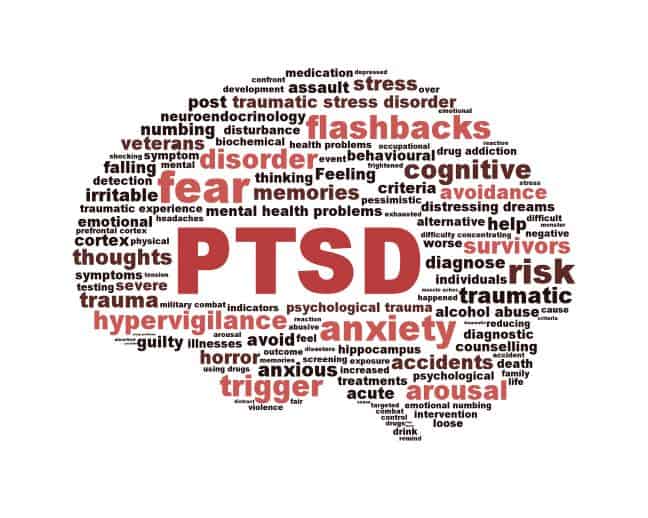Could Medical Cannabis be the Key to Combating PTSD?
There is no stressing how far medical marijuana has come within the past few years. While the federal stance on the drug remains mostly unchanged, an increasing number of states are approving its medicinal as well as recreational use. Importantly, there has been more research into the therapeutic efficacy and safety of the drug. We now have a better understanding of how medical marijuana can help in various conditions. Florida lists Post-Traumatic Stress Disorder (PTSD) as one of the medical conditions in which medical marijuana benefits. Medical marijuana for PTSD is being used more often to replace prescription medications.
What is PTSD
The American Psychiatric Association defines PTSD as a “psychiatric disorder that can occur in people who have experienced or witnessed a traumatic event such as a natural disaster, a serious accident, a terrorist act, war/combat, rape or other violent personal assault.”
Estimates show that about 70% of American adults have experienced what qualifies as a traumatic event in their lifetime. About 20% of these people go on to develop PTSD. At any given time, about 13 million Americans have PTSD. The prevalence is notably higher among veterans of war. Up to 20% of the veterans who served in Operation Iraqi Freedom and Enduring Freedom have PTSD in any given year.
What are the Symptoms of PTSD?
To be diagnosed with PTSD according to the DSM-5, an individual must have been exposed to a traumatic event and must meet the following criteria:
- Intrusive symptoms. Distressing dreams, vivid flashbacks, involuntary memories, etc.
- Avoidance: The patient will go any length to avoid reminders of the traumatic event. May involve avoiding places, people, related activities, and talking or thinking about the triggering event
- Negative alterations in mood or cognition: This usually includes general fear or distrust about everyone, including themselves, losing interest in activities they previously enjoyed, withdrawing from others, etc.
- Alterations in arousal and reactivity: May include frequent and unwarranted anger outbursts, irritability, difficulty sleeping, and self-destructive behavior.
It is, no doubt, tough to live with PTSD. Asides all the distressing symptoms that come with the syndrome, it also predisposes the patient to mental health problems such as eating disorders, anxiety disorders, depression substance use problems, etc. Many of the victims find it difficult to go back to life as it was as the symptoms are particularly difficult to manage.
What is the Current Mainstay of PTSD Treatment?
Treating PTSD requires a combination of psychotherapy and medications. The role of marijuana in psychotherapy is significant. Psychotherapy aims at helping the patients get over the traumatic event by confronting their fears and replacing the disturbing thoughts with happier memories. The medications, on the other hand, aim to provide symptomatic relief. For most purposes, doctors use antidepressants and selective serotonin reuptake inhibitors (SSRIs) as first-line medications in the treatment of PTSD.
However, a large number of patients do not respond adequately to single antidepressant therapy. Often, they have to combine two antidepressants or other classes of psychotropic medication to achieve the desired effect. Even at that, some patients still need to use mood stabilizers, anxiolytics, and other medicines. And there is still no guarantee that they would be relieved from the symptoms.
Reports confirm that the remission rate with pharmacotherapy is about 20% - 30%. Reports also show that resistance to pharmacotherapy among combat veterans is higher than the general population. This high incidence of remission makes it necessary to explore other therapeutic options for the management of PTSD.
How Can Cannabis Help PTSD Patients?
Research has shown that PTSD induces specific changes in the brain of people that have the syndrome. Most importantly, it causes an imbalance of neurotransmitters or the chemicals responsible for sending signals in the cerebral matter. Specifically, the endocannabinoid system may have a role to play in PTSD as supported by the following findings:
- Patients with PTSD show increased availability and decreased binding of CB-1 receptors
- Some patients suffering from depression have alterations in CB-1 receptors
- Activation of the CB-1 receptors in the amygdala may play a role in reducing horrific memories and anxiety
- Stimulation of CB-1 receptors in some regions of the brain can increase serotonin secretion, thereby, displaying some antidepressant effect
- The stimulation of CB-1 receptors has also been shown to normalize cortisol levels. Hypersecretion of the stress hormone, cortisol, has been implicated in patients exhibiting hyperarousal and hypervigilance. (Of note, hypervigilance can be severe enough to resemble paranoia. (See our article "Can Weed Cause Paranoia?")
- Patients who have PTSD have been shown to have lower levels of anandamide, one of the primary endocannabinoids produced by the body
What does Research Say?
In theory, cannabis should be a strong candidate for the management of PTSD, primarily since it provides a unique mechanism of action. Reports from users also support this theory. But is there any scientific study backing the claim?
Shishko et al. conducted a comprehensive review of such studies and published their findings in ‘The Mental Health Clinician.’ The report covered five different studies, scouring the results for evidence that may help us to understand the effects of medical marijuana on PTSD patients better.
The review concluded that based on available evidence, using medical marijuana for PTSD has “potential benefits for a variety of PTSD symptoms.” However, the report also noted that there is a shortage of ‘randomized, controlled, clinical trials with active marijuana use.’ This shortage is primarily due to the obstacles one has to face before securing approval for conducting a clinical trial on a Schedule I controlled substance. With more research, it would be possible to arrive at a definite conclusion about the role of medical marijuana in PTSD. What is true, however, is that many states have approved cannabis for the condition and evidence from anecdotal use shows that the drug is useful in managing PTSD symptoms.
Responsible Use is Important
While there have been studies highlighting the efficacy of cannabis for PTSD, more work still needs to be done to ascertain the safety of the drug for people who have PTSD. It is a known fact that people who have PTSD have an elevated risk for marijuana use. A study of more than 5000 PTSD patients in the United States showed that 65% of people who have PTSD had used marijuana at a point in their lifetime. This value is significantly higher than the 41% recorded in patients without PTSD. Furthermore, the study affirmed that the connection between marijuana use and PTSD is independent of the higher incidence of substance abuse and other mental health issues found in PTSD patients. The working hypothesis is that PTSD patients are more prone to using marijuana because it improves their symptoms.
It is imperative to note that marijuana has not been shown to cure PTSD. Anyone who has PTSD should not self-medicate on medical marijuana. Even if the drug is legal in your state, it is vital to obtain a medical marijuana card before you start using medical marijuana.
On a final note, cognitive behavioral therapy is still a relevant part of any PTSD treatment plan. Even if medical marijuana therapy produces a marked improvement in symptoms, the consensus is that it doesn’t take care of the underlying condition. To recover fully from PTSD, patients have to face and work through their trauma. If they can achieve this, there will be little reason to use any drug at all.
If you would like to obtain a medical marijuana card in the state of Florida, Kind Health Florida should be the first name that comes to mind. Our qualified medical marijuana doctors are always on hand to evaluate your case and help in the swift processing of your medical marijuana card. Follow this link to schedule an appointment with us, and you’ll be glad you did.



Comments are closed.